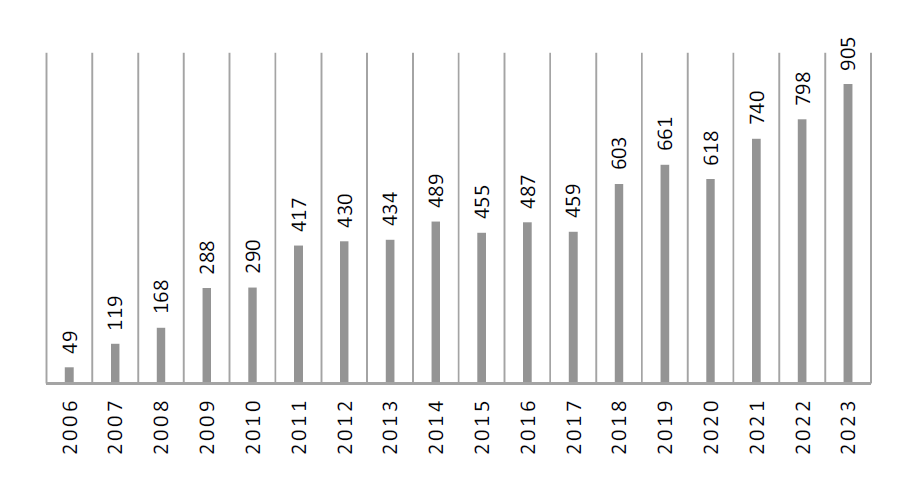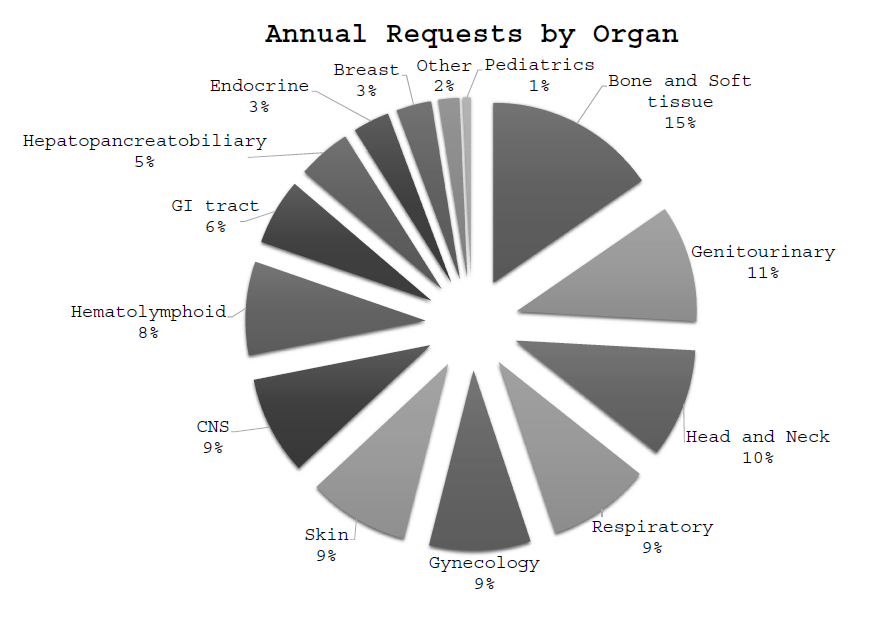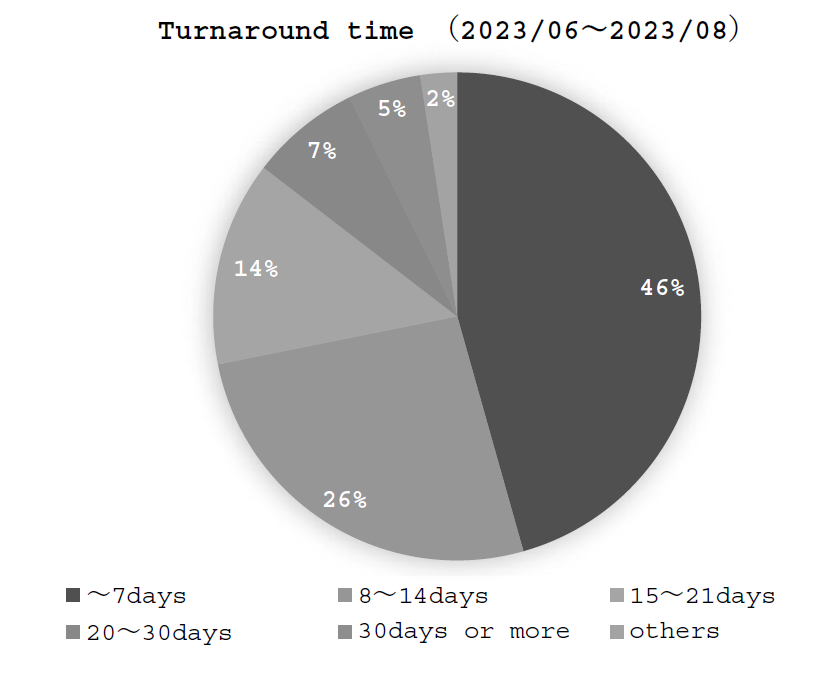Annual Report 2023
Division of Quality Assurance Programs
Tatsuya Suzuki, Yoko Nakazawa, Saho Wada, Tomomi Sano, Emi Takeuchi, Richi Takahashi, Asao Ogawa, Eri Satomi, Mika Mizumoto, Tomoe Yamaguchi, Zaika Tei, Akira Kawai, Tetsuji Minami, Shiori Yamaura, Yousuke Takagi, Yasushi Yatabe, Tomoaki Naka, Hirokazu Sugino, Kayo Maeda, Hiromi Nakamura, Mika Nakajima
Introduction
The Division builds partnerships with Designated Cancer Care Hospitals to support all health-allied professionals concerned with cancer control in Japan. The Regional Care Network Section (RCNS) supports designated cancer care hospitals through network development and training programs and conducts survey research to evaluate palliative care in cancer control. The Rare Cancer Support Section provides information needed by patients and healthcare professionals, such as information on conferences, research groups, and basic and clinical research, in addition to information on rare cancer treatment records, specialized doctors, and medical institutions. The Section of Promotion and Support for Pathology Diagnosis plays a role in mediating consultations for pathologists, with the aim of supporting the diagnosis of difficult cases of neoplastic lesions mainly for designated cancer hospitals. In 2023, we requested consultation diagnosis to 92 experts in each organ and received 905 cases (April 2023 to March 2024) and reported their diagnostic opinions. We also discussed the integration of the consultation system with the Japanese Society of Pathology, which is scheduled for April 2024, including the alignment of opinions and operation after integration.
The Team and What We Do
Regional Care Network Section serves as a hub for the nationwide cancer medical network, with the aim of improving the quality of cancer care in Japan.
Networking among Designated Cancer Care Hospitals
RCNS holds the Designated Cancer Care Hospitals Liaison-council and the Palliative Care Committee (a subsidiary organization) to enhance partnerships for cancer control in Japan.
Serving as the secretariat of Japanese Association of Clinical Cancer Centers, RCNS is enhancing cooperation among specialized cancer treatment hospitals.
Networking among Regional Palliative Care
To enhance palliative care throughout the region, RCNS is dedicated to promoting the creation of face-to-face interactions and establishing visible relationships at the secondary medical level. Additionally, RCNS collaborates to solve regional issues and nurtures skilled professionals committed to creating a comprehensive network of medical institutions in the region.
Education
The RCNS provides multidisciplinary training programs for palliative care teams and chemotherapy teams to develop leaders in each prefecture.
The Multipoint Joint Medical Conference
The Multipoint Joint Medical Conference is a regular event that connects 31 medical facilities across the country, such as cancer centers and general hospitals, through a web conferencing system. This conference focuses on various medical topics and is designed for a diverse audience of healthcare professionals, including doctors, nurses, pharmacists, radiology technicians and clinical technologists.
The Rare Cancer Support Unit serves as a centre of excellence for information on rare cancer care in Japan.
Development of a new rare cancer classification
A new classification of rare cancers (NCRC classification), which is different from the RARECARE net classification, was developed and published in collaboration with the Pathological Diagnosis Support Promotion Office to adapt it to clinical practice and actual conditions in Japan. In addition, the explanatory content of each rare cancer type on the Rare Cancer Centre's website will be enhanced based on the NCRC classification.
Rare cancer medical treatment institution search website
In addition, a ‘Rare cancer medical treatment institution search website’ is being created from the ‘Find a hospital specializing in rare cancer information disclosure’ section of the Cancer Information Service, which provides rare cancer patients with information on the actual status of their medical treatment.
Pathology consultation service
The number of requests per year is shown in Figure 1. The number of requests has increased each year, and we have seen an increase of nearly 100 cases since last year. Looking at the number of requests by organ, the most common are bone and soft tissue, urology, and head and neck (Figure 2), and the trend of bone and soft tissue tumours being particularly most common has been consistent to date, and urgent action is also required for cases that require ancillary testing (immunohistochemistry, fluorescent in situ hybridization and molecular testing). We examined the turnaround time (days from the arrival of the specimen to reporting the results to the client), which can also be used as a quality indicator for consultation services, from June to August 2023, resulting in 46% of the reports were returned within one week, which is considered to be a relatively short period of time (Figure 3). In the satisfaction survey, 98% of respondents said that the consultant's diagnostic opinions were useful, and 1% said they were neutral. In 2023, there were no respondents saying that they were not useful.
Figure 1. Annual change in the number of requests for the pathology consultation system

Figure 2. Percentage of requests by organ


Research Activities
We conduct research on building a network of the designated cancer care hospitals to improve the quality of medical care in prefectures. A webinar of our web-based reporting system was held for consultants aiming to facilitate consultation work, expecting integration with the consultation system of the Japanese Society of Pathology (held on the web on 17 March 2024).
Education
The RCNS provides multidisciplinary training programs for palliative care teams and chemotherapy teams to develop leaders in each prefecture. We also hold training programs for professionals committed to creating a comprehensive network of medical institutions in the region.
Future Prospects
To improve the quality of cancer care in Japan, RCSN will act as a hub for the designated cancer care hospitals. Especially, we will work hard to build a comprehensive network of medical institutions in the region. From April 2024, it is planned to integrate our pathology consultation service with the consultation service of the Japanese Society of Pathology. Currently, there are two separate systems of pathology consultation, one run by the Japanese Society of Pathology and the other by the National Cancer Center, even though they perform almost the same consultation work. This situation is causing some confusion, so we aim to create a system that is easier to use for the pathologists who request the service all over Japan by integrating them and enhancing the supplementary analysis, etc.
